A change of heart (Dean's List #3)
Apple's VR headset changed my stance on technology so severely that I’m no longer using clocks
After a wholesome trip to my motherland in January—filled with ruins, babies, and foreign language—I came home and got a Vision Pro so I could experiment with living in VR. I felt like I had to do it. 10 years ago I left my career as an architect to become a “visualization specialist,” and am known to rant about how iPhones will be replaced by this funky new thing called “spatial computing.”
I expected to love this thing. I daydreamed about a writing workflow where information levitated around my typewriter. I’d fuse analog and digital. I’d be a pioneer.
I returned it after 2 weeks, not just disappointed, not just disgusted, but so paranoid about technology that I’m questioning the whole foundation of my digital life.
My Notion system was transferred to a system of legal pads and index cards. My logs now get captured in a college-ruled Composition book. I’m reading the dictionary. I hand draw maps of my neighborhood. I shop in stores. I walk, too. Most extreme, I’ve been “off the clocks” for 10 days now: my lock screen is in Cambodian, and every device is in military time, set to different time zones. Once a day, I set timers so I can catch trains and meetings. I haven’t missed one yet (I’m remarkably early for the first time ever). If I ever really need the time (I rarely do), I can either go to my stove or time.gov.
Now I get that this sounds like an extreme overreaction, and if you’re anything like Chris Wong (the first reviewer of this draft), you might be asking, “did you see a monster in there?” No. I saw peaceful lakes and magical maps and full-scale memories. I turned my fig tree into ChatGPT. Notion windows, everywhere. My heroes sung to me on massive screens while I washed dishes and vacuumed dirt. I watched the Superbowl on a 165” crystal pane, and it made my 65” Samsung Frame look like the small TV in my parent’s kitchen.
Any given feature is profoundly cool the first few times you use it (this is why the Apple Store demos are a hit), but they all conspire together for a more sinister truth. If you actually want all this magic functionality in your life, you have to wear the brick all day. You can, and when you do, you get accustomed to your consciousness being locked into clear, huge, mesmerizing screens, everywhere you go; by contrast your own apartment is seen through grayish, fuzzy, CCTV camera feeds: good enough to get around, but too fuzzy to read the words in a printed book.
It’s the epitome of a Faustian bargain:
The Vision Pro brought a lucidity to my (/our) relationship with technology: a fetish for technological awe and an unspoken religion of tyrannical convenience. We are in a cult of efficiency. Each year we’re pulled further into a frictionless sensorium; the reasons to upgrade are a no-brainer, but the amputations are invisible.
So the last few weeks have been a slow process of experimentation. I’ve been re-evaluating all the technology I’ve uncritically adopted. What might I gain back? I’m neither Luddite nor Cyborg. Instead, I scrutinize my tools. Does adding or removing this feature make me more or less embodied, creative, social, or grateful? The goal is to design a mosaic of doohickeys that work together to bring me closer to my own idiosyncratic sense of purpose. It results in a weird and seemingly bizarre combination of the old and new. I’m calling this stance: “techno-selectivism.”
If I build a sundial, I’ll make sure to record it with AI-powered smart glasses.
Coming up in March:
a deep dive on the Vision Pro called Go Touch Paper,
a full defense of my experiment called Abolish Clocks,
and another few chapters of Essay Architecture.
Here’s what I’ve published recently:
For $10/month, you’ll unlock posts like these each month
that deconstruct the secret architecture of great essays.
Typewriter essays_
I published 12 typewriter essays last month to a secret sub-list of Dean’s List (this is another bonus of becoming a paid subscriber). If you want them in real-time, you can opt-in through your account settings by turning on the Analog section. This batch covers reflections on technology, analog life, some dreams, memories, and film reviews, and an experiment on what it’s like to be a Batman.
Logloglog_
In each edition of Dean’s List,
I’ll share some top logs from last month.
Tim Cook’s eyes
February 1st, 1:24 pm — Tim Cook is on the cover of Vanity Fair with the title "Moon Shoot." It’s the first time we see him in a headset. He’s not embarrassed! Unlike the quirky TIME cover of Palmer Lucky in 2015—where he’s levitating on a beach with a big wired headset—Cook is calm. In an ergonomic chair, he’s got casual shoes and a sleek watch, against a minimalist wood desk in a bright room, with a background that shows a football helmet and some unhung art—he’s a regular guy, just like us. But something is off with his eyes. It is technically marvelous that inner cameras can detect his retinas and re-project them onto the outer glass of the headset, but in this very clutch moment where the world sees TCook in VR for the first time, his eyes are dreary like hell. Is he asleep? They’re barely open, a half-squint, shrouded in blue fog, as if he’s preserved in digital submission, some eerie limbo where he can’t be fully conscious.On getting stuck in holes
February 5th, 6:41 am — On the LIRR to Grand Central, everyone is on their phones (it’s almost not even worth reporting on this because it is obviously the default and has been so for a decade). It just feels notable to observe this on route to try out the new AVP headset, which some people have described as a “religious experience,” and also a “BC/AD” moment (meaning once you try it on, there is no coming out). This is roughly the 10-year anniversary of me trying my first virtual reality headset. I went to my friend’s apartment in Astoria and tried the DK-2: a plastic, taped together rectangle, 960x1080 and only 1 million pixels in each eye (23 times less than what I’m trying today). It had the screen door effect, it was impossible to read text, and was at times extremely nauseating, but I remember looking at a digital horizon from that Oculus Villa and noticing my eyes adjust, and probably said some true cliche like: “wow, this is the future.” That was produced by a kid on Kickstarter, and today’s experience will be by one of the world’s leading technology companies.I prefer Ping Pong
February 7th, 9:11 pm — I’ve put my finger on what bothers me about the Vision Pro compared to other wearable tech I own. The Quest has clear, limited use-cases: I can jump in for a 3D architectural review, or to get my heart rate up with Beat Saber, or to play mini-golf or ping-pong with friends across the country. I’m in and out in 20-60 minutes.The Rayban Stories are an always-on-your-face technology, but they disappear. I forget they’re there, and yet when I need them, I’m actually “augmenting” something—taking video, listening to music, or on a call. But the Vision Pro is an intrusive, all-encompassing device. It doesn’t (yet) offer new use cases, it’s an OS that magnifies the core things you already do. The implication then is for you to wear this all day; and in-exchange for surreal and powerful digital experiences, your eyes are replaced with a CCTV feed—one that is surprisingly good, but is still—filled with blurriness, artifacts, and glitches. The AVP is the philosophical opposite of the iPod, the Apple Watch, and the Airpods: those disappear, while this one replaces your window to reality. It intrudes on your sight, your most fundamental tool of sensemaking. It asks you to trade in the core part of your human experience for $4,000 and $25/month insurance.Aliens at the Super Bowl
February 11th, 6:30 pm — Commercial 1: features the apocalypse and aliens (a Quiet Place 3?). Commercial 2: an unrecognizable quarterback gets sucked into a street portal and the other actors don’t seem to mind (to sell Dr. Pepper). Commercial 3: opens with a red, swirling hypnosis portal. What’s with the alien theme? The biggest event in our culture was peppered with 10-15 allusions to extraterrestrial life. A conspiracy theorist would call this predictive programming, but it likely boils down to marketers all coming to the same conclusion independently. A social media analysis probably determined that the top 2 things on people’s minds in 2024 are celebrities and UFOs. It’s just market research. Give us shape-shifting Tom Brady.Philosophers, directors, poets
February 15th, 9:00 pm — A writer is a philosopher, a director, and a poet. They’re a philosopher in their concern for truth and in mapping webs of ideas. They’re a director in the sense that they have to produce a single linear cut through all possible cuts. They’re a poet in the sense that every sentence is a work of art.Electronic tribalism > personal hallucinations
February 15th, 6:09 pm — AI and the death of Hollywood; that’s the theme of X today. From a simple prompt, you got a multi-shot 60 second trailer. Unlike last years’ grotesque demo of Will Smith eating spaghetti medieval style, this is smooth. What are the second order effects? For one, if everyone is watching their own custom-generated films, then shared culture dissolves. If the Internet brought us from mass-media to electronic tribalism, then AI brings us from electronic tribalism to personal hallucinations. Media no longer serves the role of a unifying fabric. I can’t go to a friend and rant about the movie The Lobster and immediately get into conversation about it—instead I’ll have to go, “do you have 90 minutes to check out this wacky thing I “made?” The answer will be no; they’ll have a whole playlist of wacky things they “made.”The point of scoring essays
February 18th, 9:40 pm — I’ve been scoring the classic essays I read; so far the scores range from 5.9 to 8.5 (out of 10). I’m definitely wrong on many sub-points, but the exercise is helpful. An important note: an essay score can’t access the originality or merit of an idea. Instead, it measures the completeness in the components that good essays are known to have. There are patterns in ideas, structure, and voice, that can all be synthesized together into a unity. Brilliant ideas might ignore these patterns, and find a hard time resonating with an audience. A brilliant idea in a bad essay might be in the 6s, but an okay idea with solid form could be in the 8s. Learning the core components lets you shape a sound vessel for whatever experience or theory you want to share.Clocks go TikToK
February 18th, 9:55 pm — There’s a lot to the name “TikTok;” it’s not just an alliteration, but an onomatopoeia: the app is named after the physical sound of the second hand on an analog clock. It’s an allusion to the passage of time, that in some fundamental way, TikTok is re-writing. They are delivering a carousel of media universes that can be flicked through faster than the clock ticks. Empty time is replaced by delirious saturation. We are not built to occupy 60 worlds-per-minute (relevant: addled)Go for a walk and try Plexus
February 19th, 1:02 pm — The “playlist” feature on Plexus makes the whole concept of voices click for me. It’s meant for walking outside. You start by unpacking what’s on your mind, and then you surrender to the resulting stream. It’s a flow of unoptimized 60 second rambles that have the associative nature of the movie Waking Life. The experience of the app feels like a late-night winding conversation, an intimate experience once reserved for dorm-room friends, now undertaken with strangers from around the world. It is screenless, feedless, honest, and inviting— the opposite of today’s paradigm—and could be a monumental force in finding the others. The key challenge is that it asks someone to change their clock speed. There’s no skimming or scrolling, no navigating to find that “aha.” You have to be patient and open with what’s presented to you. As Plexus scales, the level of uncanny resonance could be so high that it overrides the need for cheap hits.Platonic relationships
February 20th, 12:49 pm — platonic : (adj) A “platonic relationship” has come to mean a non-sexual one, which is revealing. Google it. It’s seen as a second-rate, friend zone situation (“you mean you’re spending all that time together and not fucking?”). “Platonic,” comes from Plato, who sought to break things down into their purest forms. Any realm is composed of invisible underlying components. In the same way “the platonic solids” refer to the elementary 3D shapes, Plato’s writing on love outlined the full range of dimensions that could exist within a relationship. Through this lens, you might think a “platonic relationship,” is one that includes all possible facets (compatibility, trust, respect, vulnerability, coevolution, insider slang, shared values, shared stakes, a common history, etc.). By re-defining platonic as “not sexual,” we’ve not only declared sex as the pinnacle of what a relationship can and should be, we’ve not only collapsed the rich nature of a human bond into “sex” or “not sex,” but we’ve lost the word to describe Plato’s method of thinking. The word “platonic” could refer to things outside of relationships, but when I tell people that my Essay Architecture project is platonic, they look at me funny. Horniness hijacked the name of our best philosopher.
Let’s riff:
Do you keep any analog habits that are hard to justify to others?
Thoughts and feelings on emerging technology in 2024?
Which logs stand out? What should I bake into an essay?

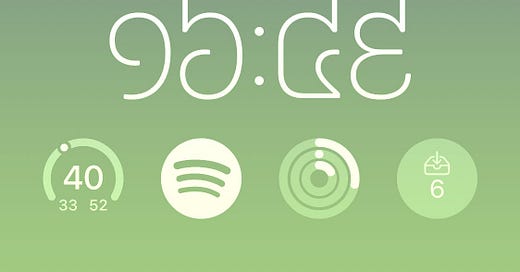






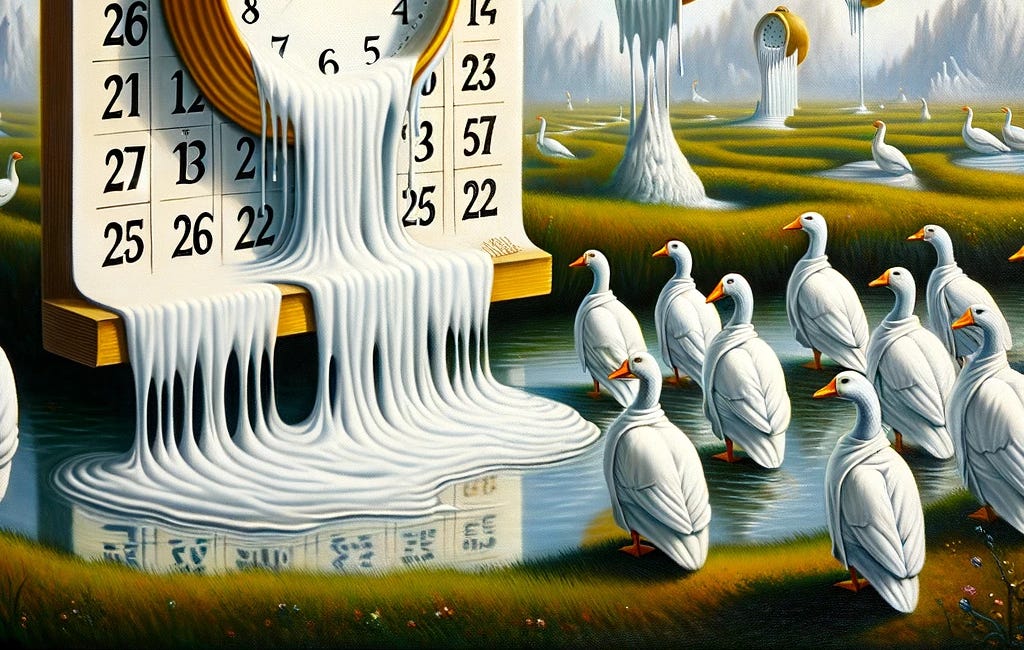
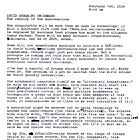
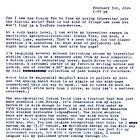
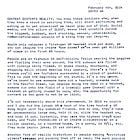
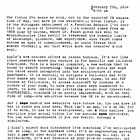
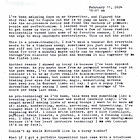
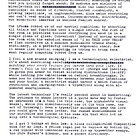
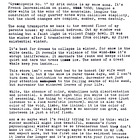
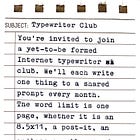
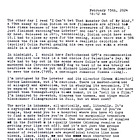
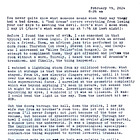
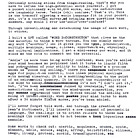
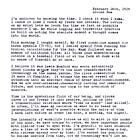
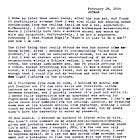
When Socrates complained that reading was going to make people dumb and forgetful, this is probably the sort of reaction he had. And maybe like you, it inspired him to be physically and mentally stronger than his peers. He could meditate standing up for 24 hours straight, for example.
All of us now, though, compared to early humans, are pretty dumb and forgetful. Chinless and big-eye'd domestic cousins of our ancestors who memorized thousands of songs, stories, poison plants, dangerous landscapes, knots, and also kill a lion. Now I can't get to the grocery store without a supercomputer.
Vision (and the like) brings that to a new extreme. How far down this path can we go? I mean, pretty soon we're just the Wall-E people, right? Is there a forcing function here?
Why choose Cambodian and military time specifically ?